Search
New CHP plant supports Cranfiled University’s Carbon Management Plan to reduce carbon emissions and deliver onsite efficient heat and power.
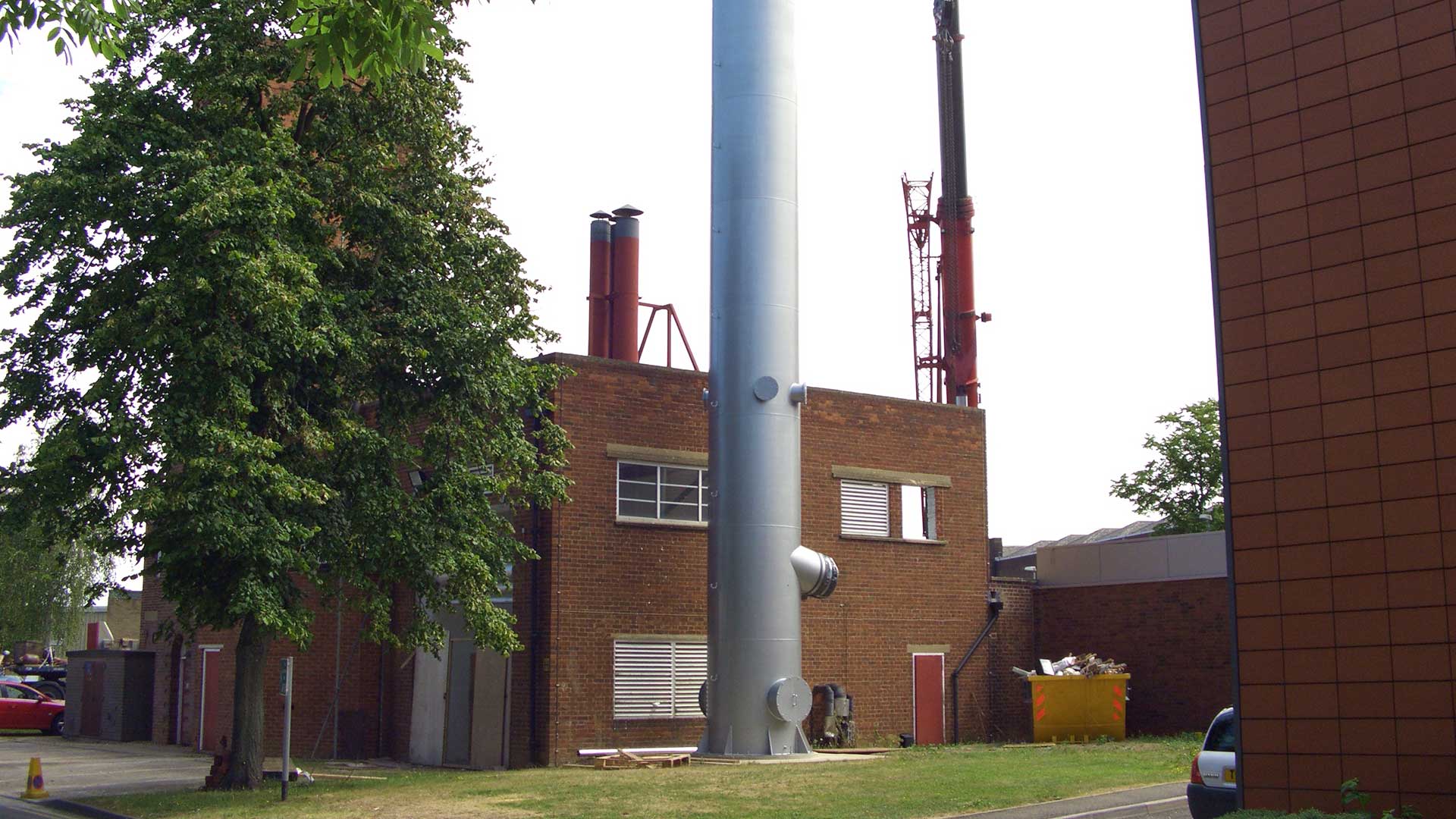
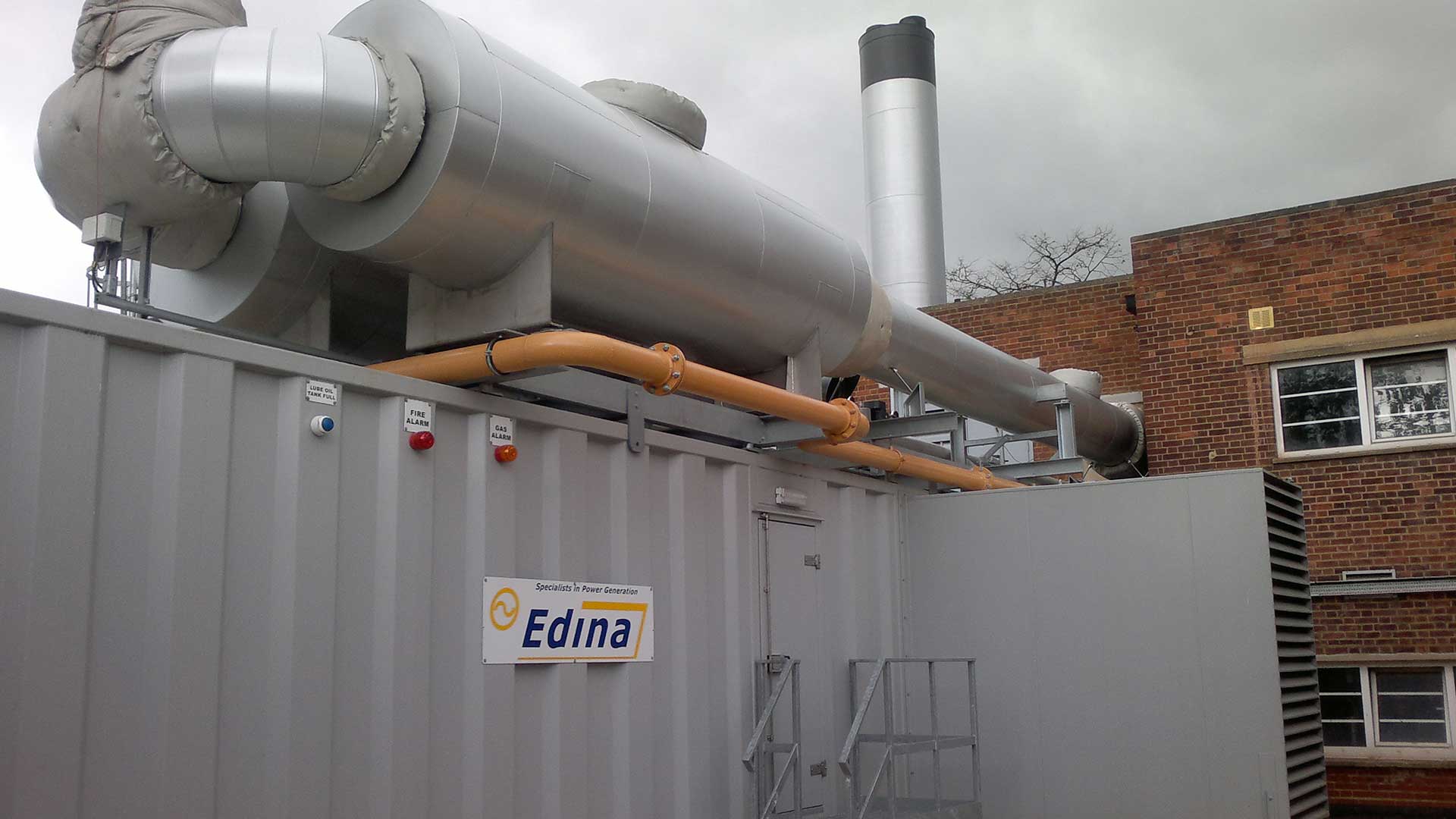
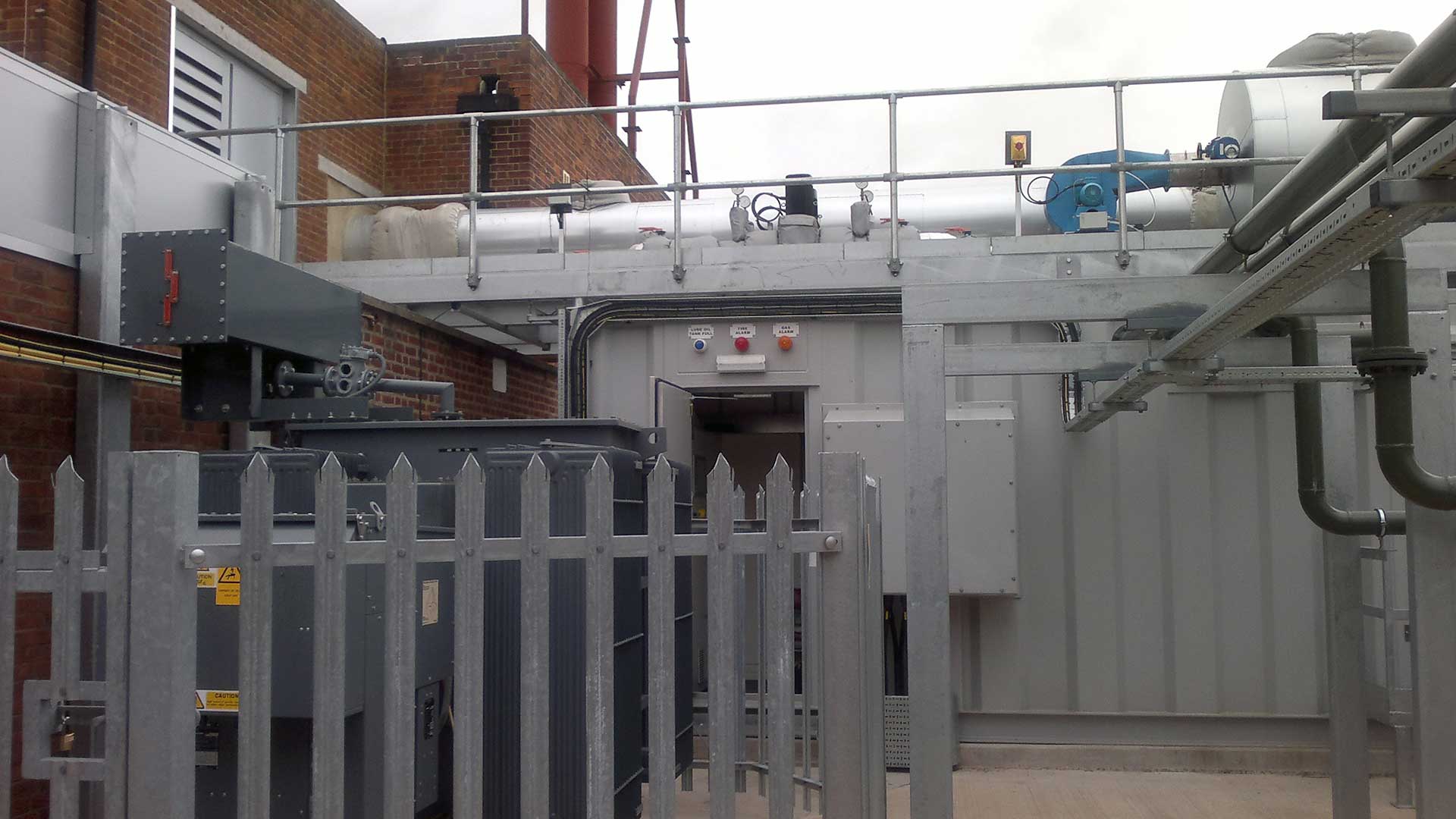
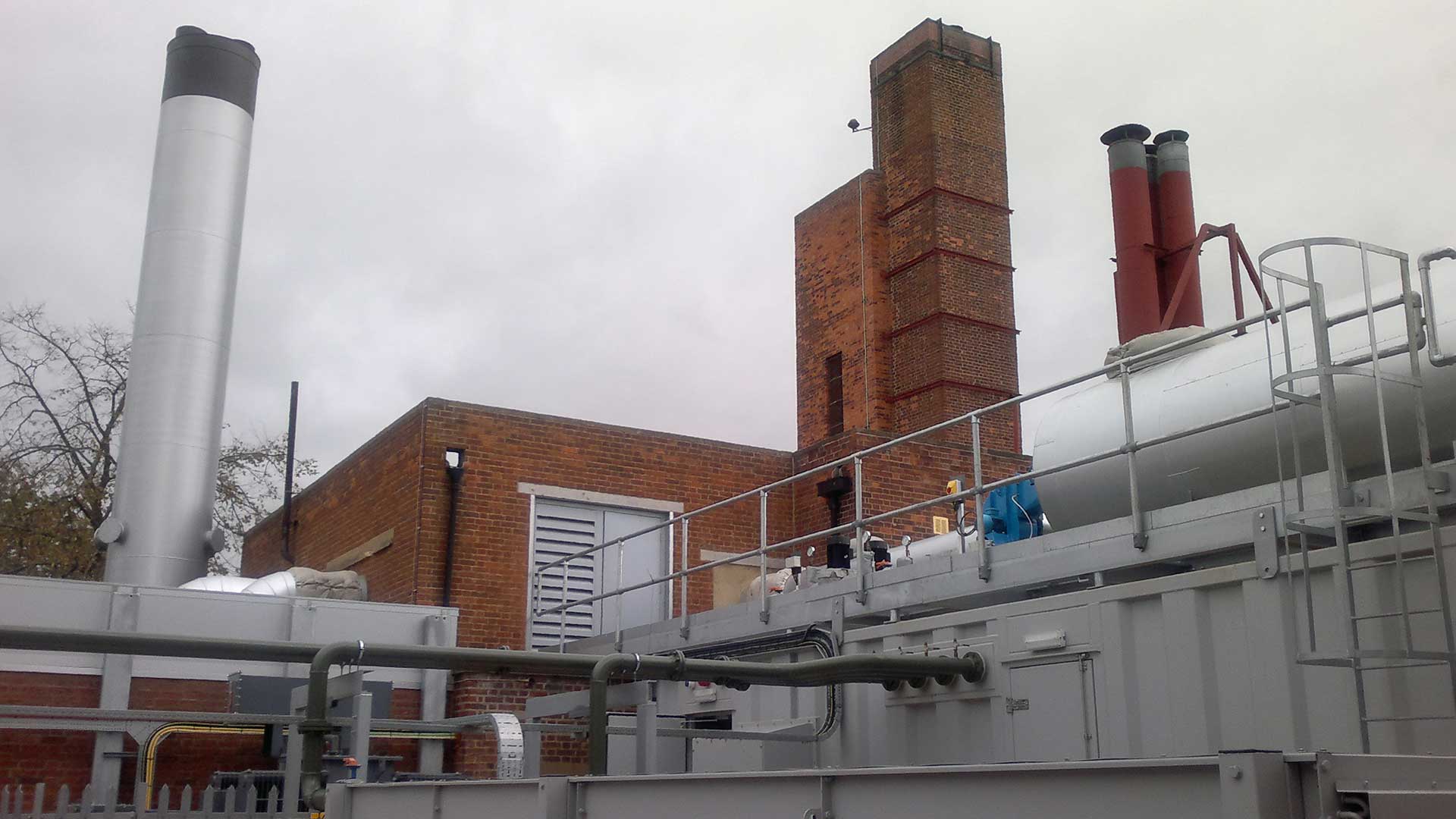
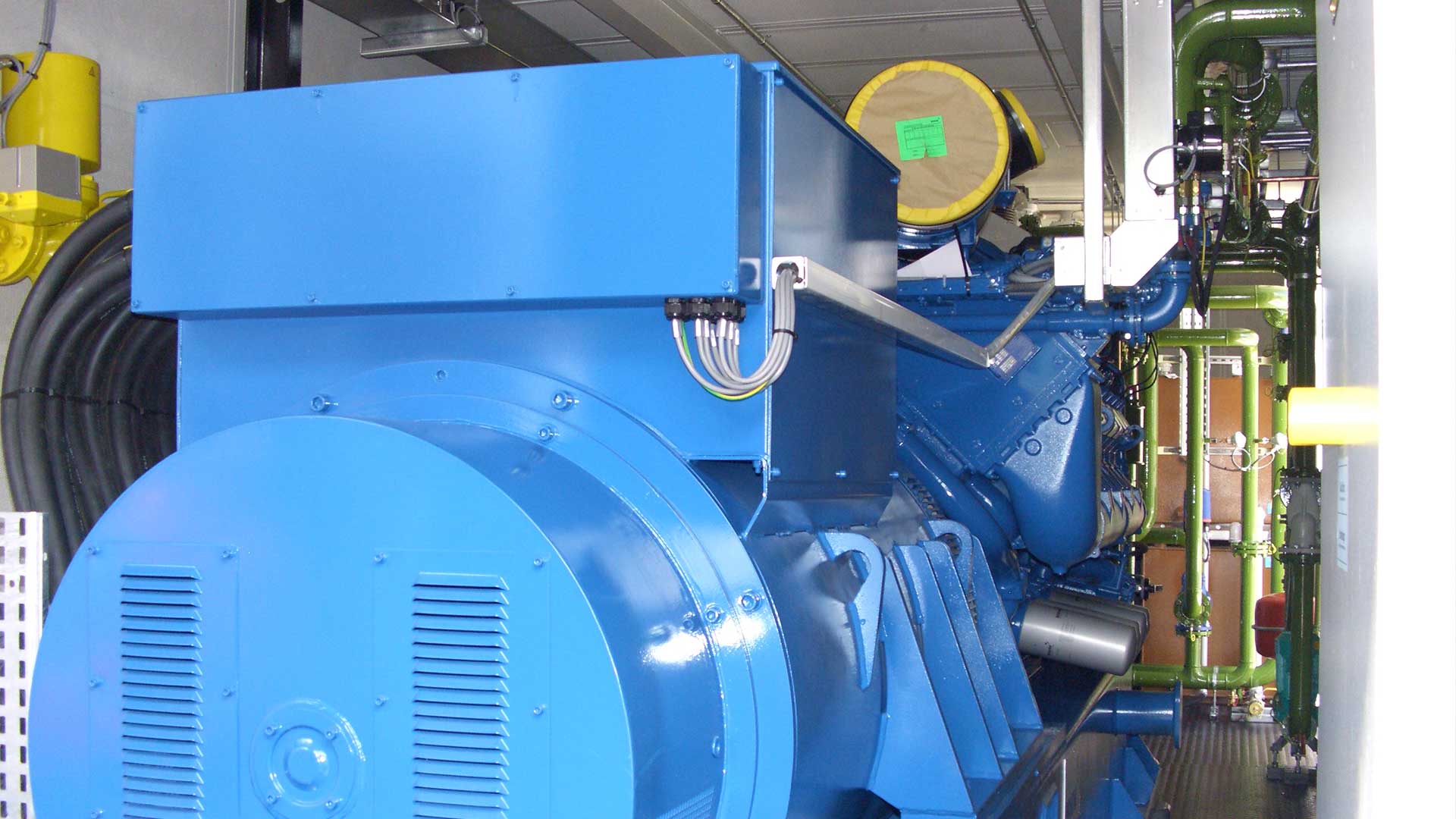

New CHP plant supports Cranfiled University’s Carbon Management Plan to reduce carbon emissions and deliver onsite efficient heat and power.
As part of Cranfield University’s on-going commitment to reduce CO2 by 50% within a 5 year period the Cranfield Carbon Management Plan (CMP) was approved in February 2009 by the Executive.
As part of the CMP initiative, the University awarded Edina the prestigious contract to design, build, install and operate a new Combined Heat and Power (CHP) installation.
The Turnkey contract included the MWM engine and the entire balance of plant consisting of the full engine heat recovery system, a composite steam package boiler, exhaust system and stack, full mechanical and electrical integration, BMS integration and civil construction, making Edina fully responsible for the whole life operation of the supply contract.
Edina were selected based on the high electrical efficiency achieved from the MWM TCG 2020 V16 engine which combined with a fully inclusive maintenance contract provided the University with the lowest lifecycle operating cost. In addition, Edina could also offer a total turnkey solution and a proven track record within the Education industry sector.
The project commenced in August 2010 with Edina taking on the full construction and design responsibilities as required under Construction, Design and Management (CDM).
A dedicated site based Project Manager was appointed to coordinate the day to day responsibilities and to provide continuity of contact at site between all contracting parties and the client.

The CHP installed is a key part of the University’s Carbon Management Plan to reduce Carbon emission by 50% by 2020. It will also contribute substantially to reducing our annual costs. The low operating and maintenance costs were important as well as a contract to provide this cover up to 2020. Another key issue was the ability to perform at a very low noise and vibration level.
Careful consideration had to be given to the stringent noise levels imposed by the University. The CHP unit was to be sited outside the existing boiler house, adjacent to a Laboratory Building which needed to be protected from noise and any associated vibrations. The final solution was to provide the unit in a weather proofed anti-vibration enclosure with a certified noise emission of 60dBa/1m. Further significant consideration had to be given that the installation was being executed within a “live” site with the unit being located near the main road within the campus and with a fully operational airfield located to the rear.
The basic principle of the installation is to provide power, steam and heat to complement the existing utilities at site. The power generated from the engine provides 1.5MWe to the site’s HV ringmain which equates to approx. 12% of the total power for the site. The composite boiler has a total capacity of 6000kg/hr with approximately 1000kg/hr being generated from the exhaust gas from the engine, the remainder being generated via the fired section which incorporates the latest high efficient combustion technology incorporating variable speed fans and oxygen trim. To optimise heat transfer from the boiler a flue gas economiser is fitted to the boiler exhaust which is used to pre-heat the boiler feed water. The jacket water from the engine is used as low temperature hot water and provides 800kWt to compliment the site’s heating requirements.
The total system was commissioned and handed over to the client in April 2011 and achieves an electrical efficiency of >42%, with an overall system efficiency of >87%. The system has reduced the Universities CO2 emissions be approximately 10%. The University currently offers courses on the viability and operation of CHP systems and the CHP plant plays a key role within the delivery of the course and provides an additional form of revenue to the University.

Client:
Cranfield University
Location:
Cranfield, United Kingdom
Capacity:
1.4MWe
Operational:
2011
Manufacturer:
MWM
Packager:
Edina
Engine Type:
1 x 1.4MWe TCG 2020 V12
Primary Fuel:
Natural Gas
Queen’s University Belfast saves £948,000 per annum through CHP technology.
Read moreNew district heating CHP energy centre supports University of Warwick to deliver efficient heat and power.
Read moreEdina CHP educates University of York to reduce energy costs and carbon emissions as part of a wider energy and carbon reduction initiative.
Read more



Copyright © Edina. All Rights Reserved.